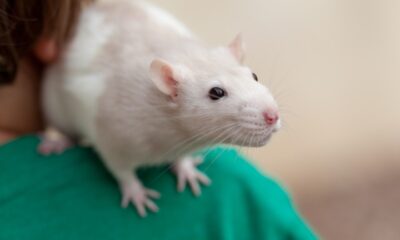
Shutterstock
Hamsters are adorable, low-maintenance pets that make a delightful addition to many households. However, owning a hamster comes with specific responsibilities and considerations to ensure their health and happiness. From choosing the right species to understanding their unique behaviors, being informed is key to successful hamster care. These small creatures are full of personality, but they require proper handling, housing, and nutrition to thrive. Before bringing home a hamster, here are 25 important things you should know to prepare for this rewarding journey.
Lifespan
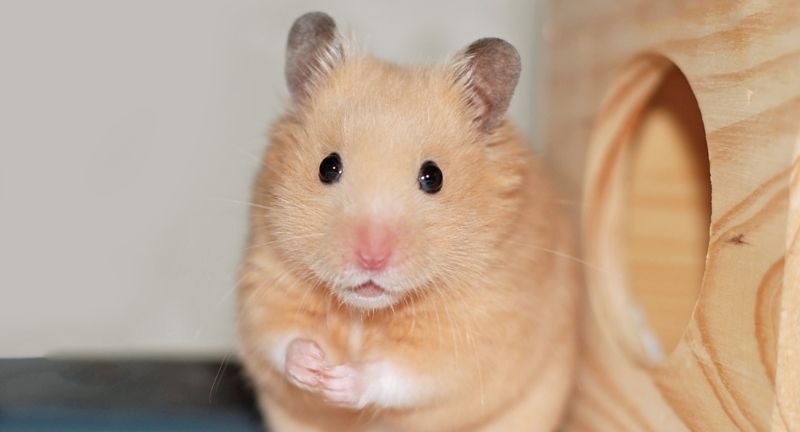
Shutterstock
Hamsters have a relatively short lifespan, usually between 2 to 3 years. This means they are a short-term commitment compared to other pets like cats or dogs. While their lifespan may be brief, it’s essential to provide them with love and proper care throughout their time with you. Knowing this before adopting can help you prepare emotionally and plan responsibly.
Species Variety
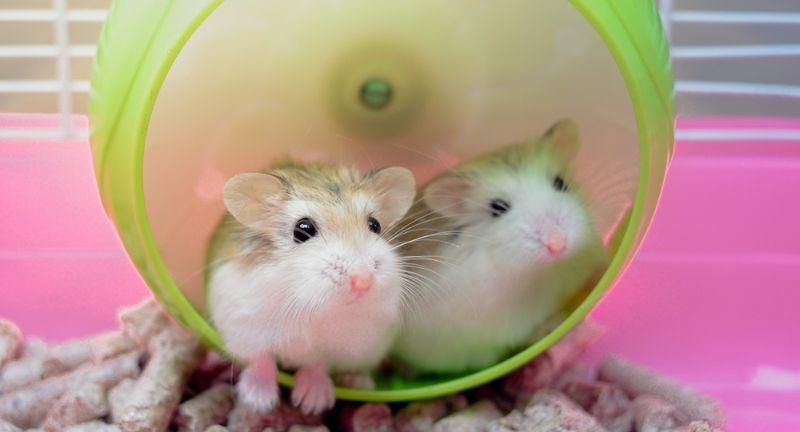
Shutterstock
There are several hamster species to choose from, such as Syrian, Dwarf, and Roborovski. Each species has unique needs, personality traits, and activity levels. For instance, Syrians are larger and typically prefer to live alone, while Dwarf hamsters can sometimes coexist with companions. Researching the species before purchase ensures you pick the best fit for your household.
Nocturnal Nature
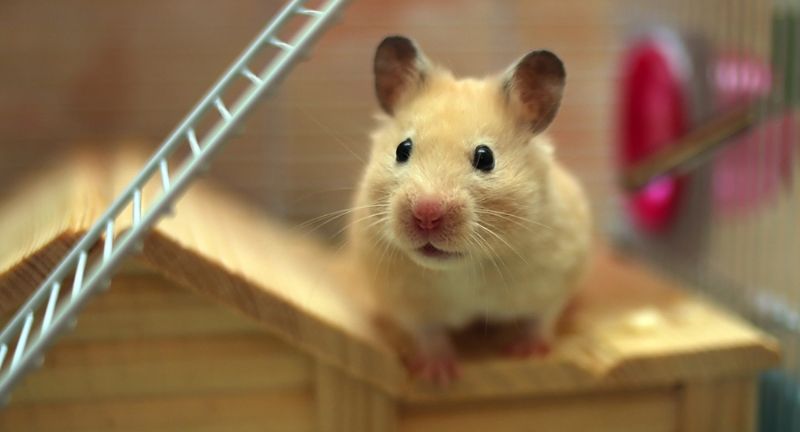
Shutterstock
Hamsters are nocturnal animals, meaning they are most active during the night. They may spend their days sleeping and come alive after sunset, running on their wheel or chewing on toys. This behavior might not be ideal for households with young children or light sleepers. Understanding their nocturnal nature will help you set realistic expectations and avoid disruptions.
Solitary or Social?
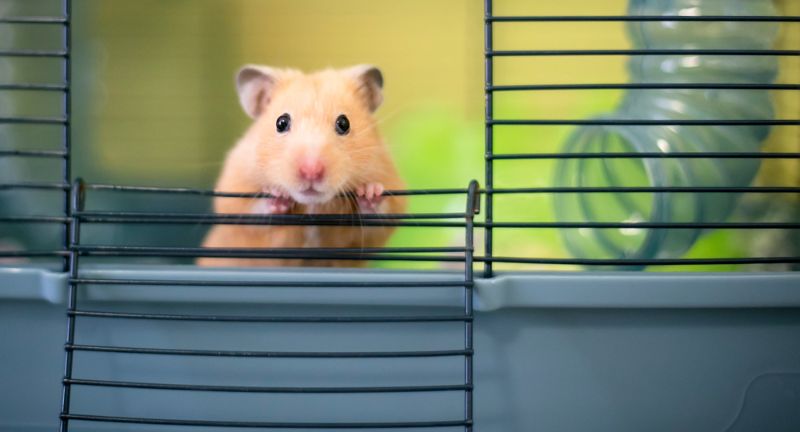
Shutterstock
Syrian hamsters prefer to live alone and can become aggressive if housed with others, while Dwarf hamsters may tolerate companionship under specific conditions. It’s crucial to understand your hamster’s species and social tendencies to ensure their happiness and well-being. If you plan to keep more than one, introduce them at a young age to minimize territorial disputes. Always monitor their interactions to prevent injuries or stress.
Proper Housing
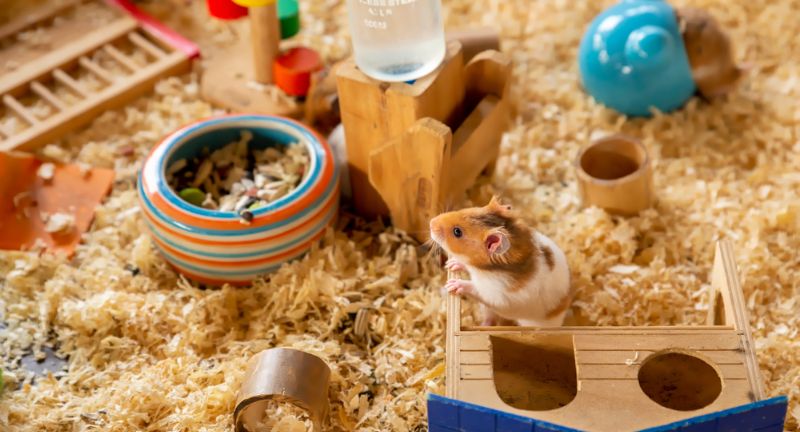
Shutterstock
Hamsters need a spacious, well-ventilated cage with a solid base to live comfortably. Avoid cages with narrow tubes for larger species like Syrians, as they may become stuck. The bars should be chew-proof to prevent escapes and injuries. Providing adequate housing creates a safe and enriching environment for your pet.
Wheel Size Matters
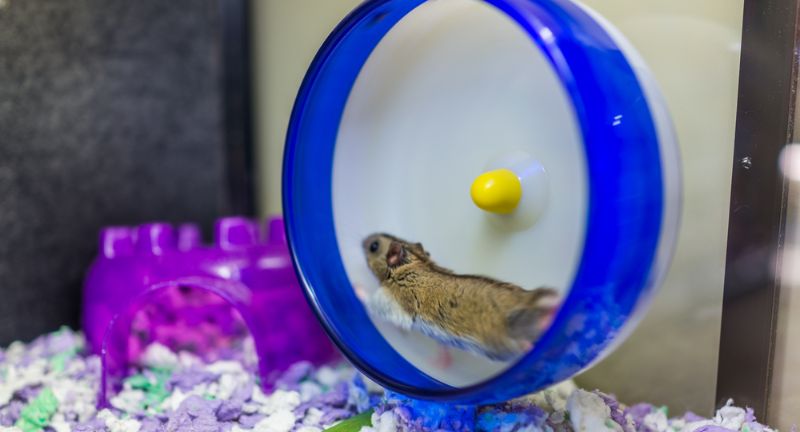
Shutterstock
An appropriately sized wheel is essential for your hamster’s exercise routine. For Syrian hamsters, smaller wheels can cause back issues and discomfort. Choose a wheel with a solid surface to prevent their feet from slipping through the bars. Ensuring your hamster has a safe and comfortable wheel supports their physical health and keeps them entertained.
Chewing Habits
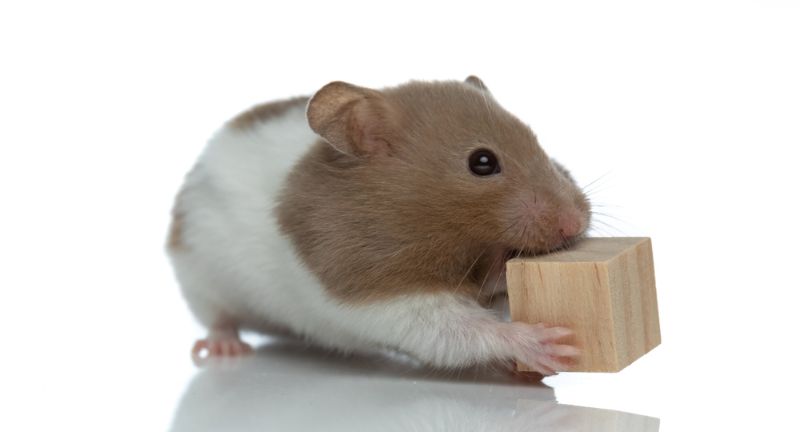
Shutterstock
Hamsters have teeth that grow continuously throughout their lives, so chewing is a natural and necessary behavior. Providing chewable toys, wooden blocks, or untreated fruit tree branches helps maintain their dental health. Without proper items to gnaw on, their teeth can become overgrown, leading to discomfort or health issues. Regularly checking and maintaining their teeth ensures they stay happy and healthy.
Temperature Sensitivity
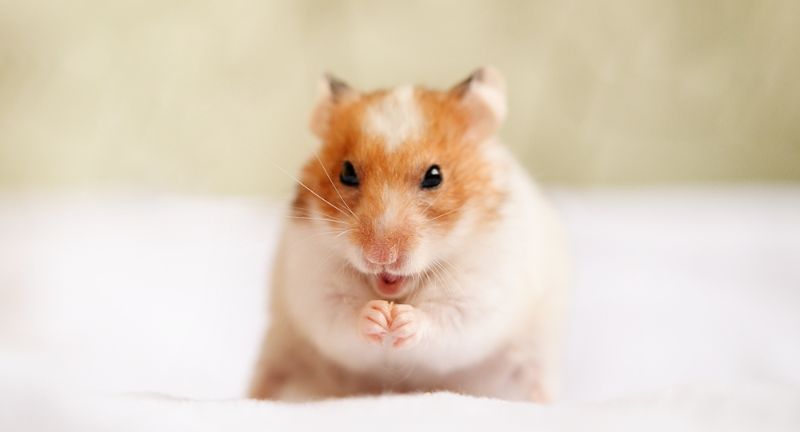
Shutterstock
Hamsters are sensitive to temperature changes and thrive in an environment between 65°F and 75°F. Extreme heat or cold can cause stress or even health problems for your pet. Keep their cage away from direct sunlight, drafts, or heating vents. A stable, controlled environment ensures your hamster’s comfort and well-being.
Food and Nutrition

Shutterstock
A hamster’s diet should consist of high-quality commercial pellets supplemented with fresh fruits, vegetables, and occasional treats. Avoid giving them citrus fruits, onions, or foods high in sugar, as these can harm their health. Clean, fresh food and water should always be available. A balanced diet promotes long-term health and energy for your furry friend.
Safe Bedding
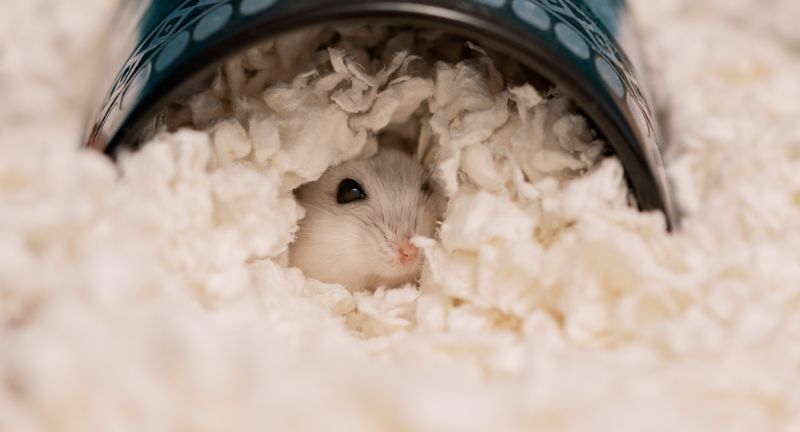
Shutterstock
Choosing the right bedding is crucial for your hamster’s health and comfort. Avoid cedar or pine shavings, as their strong scents and oils can irritate a hamster’s respiratory system. Opt for aspen shavings, paper-based bedding, or other safe, absorbent materials. A clean, comfortable substrate encourages burrowing and nesting behavior while preventing health issues.
Water Bottle Setup

Shutterstock
Hamsters need access to clean, fresh water at all times. A leak-proof water bottle is ideal, as it prevents spills and keeps the cage dry. Check the bottle daily to ensure it isn’t clogged and refill it as needed. Proper hydration is essential for your hamster’s overall health and well-being.
Escape Artists
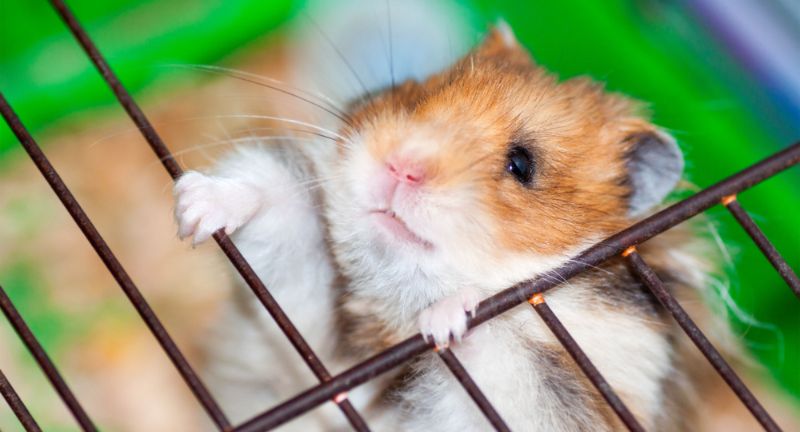
Shutterstock
Hamsters are skilled escape artists and can squeeze through incredibly small gaps. Ensure their cage is securely closed and has no weak points that could be chewed through. Regularly inspect the cage for signs of wear or escape attempts. A secure enclosure keeps your hamster safe and prevents any adventurous mishaps.
Regular Cleaning
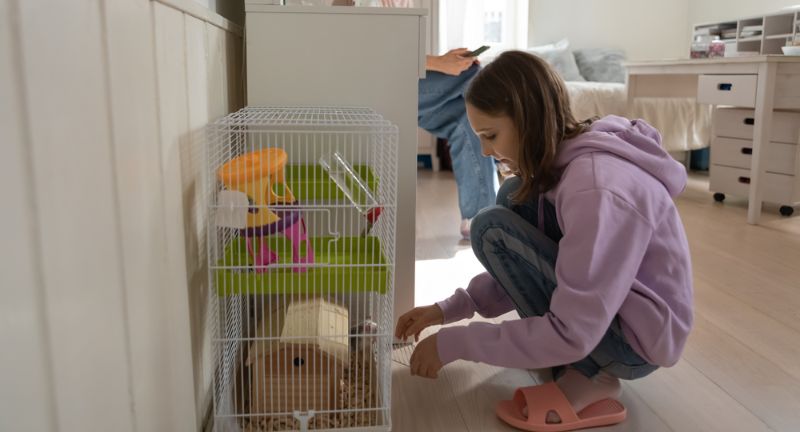
Shutterstock
Hamster cages should be spot-cleaned daily to remove waste and uneaten food. Perform a deep clean once a week by replacing the bedding and cleaning the cage and accessories with pet-safe products. Regular cleaning prevents odors and reduces the risk of bacterial or fungal infections. A clean environment contributes to a happier and healthier hamster.
Handling with Care
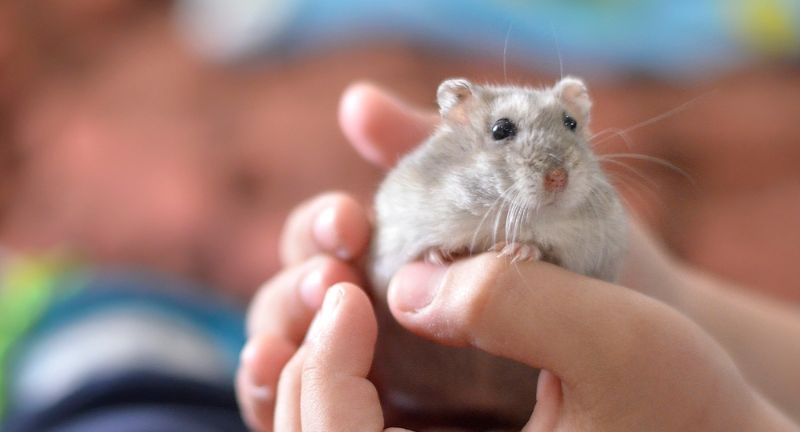
Shutterstock
Hamsters are small and delicate, so handling them requires a gentle touch. Always allow your hamster to get used to your scent before attempting to pick them up. Avoid sudden movements or grabbing them unexpectedly, as this can cause them to bite out of fear. Proper handling builds trust and helps your hamster feel secure.
Exercise Outside the Cage
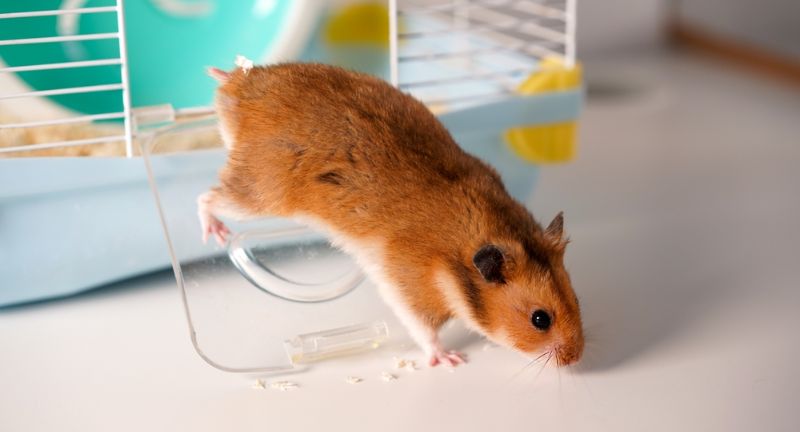
Shutterstock
Hamsters enjoy exploring and exercising outside their cage in a safe environment. Use a playpen or a hamster-proofed room where they can roam freely without risk. Supervise their playtime to ensure they don’t chew on wires or other dangerous items. This extra activity keeps your hamster mentally stimulated and physically healthy.
Vet Visits
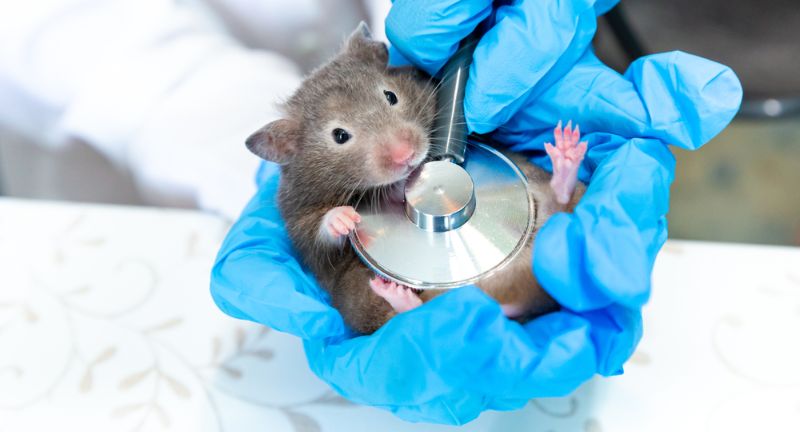
Shutterstock
Hamsters require care from a vet experienced with exotic pets. While they are generally low-maintenance, they can still develop illnesses or injuries that need professional attention. Find a qualified vet before adopting to ensure you’re prepared for emergencies. Regular check-ups help detect potential health issues early, ensuring your hamster’s longevity.
Allergy Concerns

Shutterstock
Some people may be allergic to hamster fur, bedding materials, or dust from their cages. If you or a family member has a history of allergies, spend time around hamsters before committing to adoption. Testing for sensitivities beforehand can save both you and the pet from future challenges. Ensuring a suitable match is key to a harmonious household.
No Sudden Movements
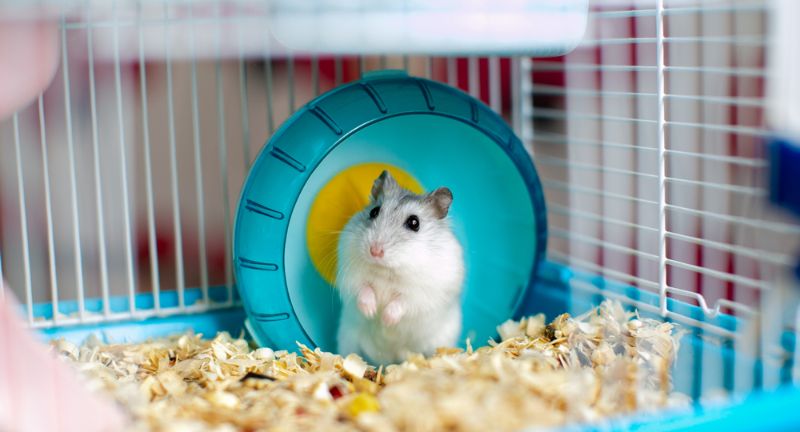
Shutterstock
Hamsters are easily startled by sudden movements or loud noises. Always approach their cage calmly and speak softly to avoid scaring them. Sudden disturbances can cause stress, leading to defensive biting or reluctance to interact. A quiet, predictable environment helps your hamster feel safe and secure.
Low-Maintenance Grooming
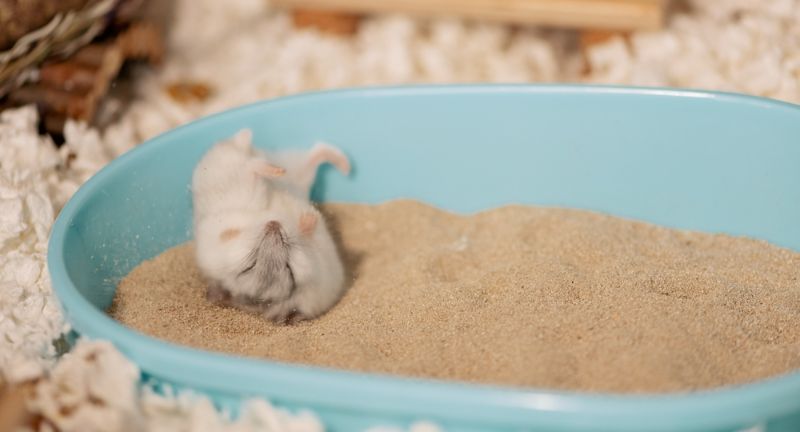
Shutterstock
Hamsters are naturally clean animals and typically groom themselves, making them low-maintenance in this area. Avoid giving them water baths, as this can cause stress and harm their health. If necessary, provide a sand bath to allow them to clean their fur naturally. Keeping their cage clean further ensures they remain tidy and comfortable.
Travel Challenges
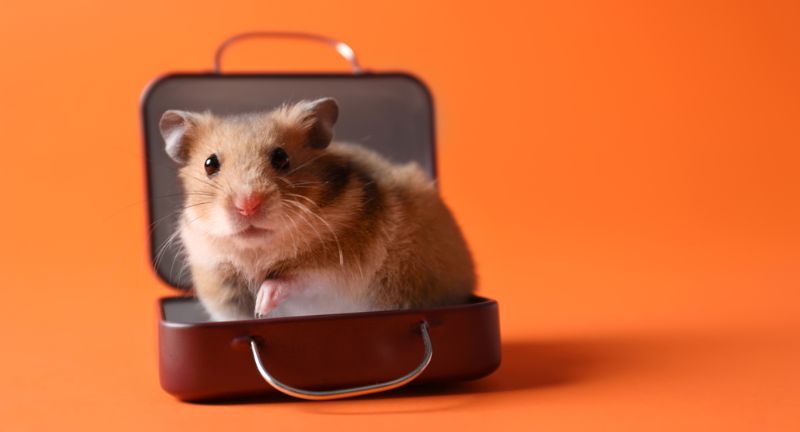
Shutterstock
Hamsters don’t adapt well to frequent travel or new environments. Moving them can cause stress, so it’s best to minimize travel whenever possible. If you’re planning a vacation, arrange for a trusted friend or pet sitter to care for them. Understanding this can help you plan ahead and ensure your hamster’s comfort.
Breeding Risks
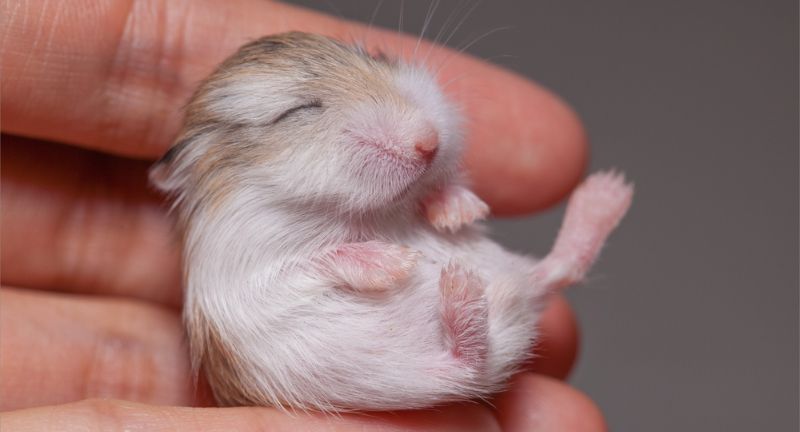
Shutterstock
Hamsters can reproduce quickly, so housing males and females together is not advisable unless you are prepared for a litter. Female hamsters can become pregnant as early as four weeks old, leading to unexpected complications. Breeding requires careful planning, knowledge, and resources to care for the offspring. Avoiding unintentional breeding keeps your hamster’s environment stress-free and manageable.
Activity Monitoring
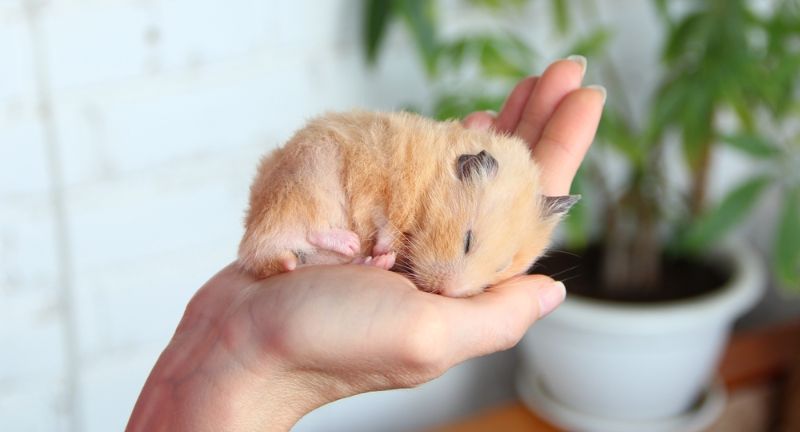
Shutterstock
Hamsters are usually active and curious creatures, so changes in their behavior can signal health issues. If your hamster becomes lethargic, stops eating, or hides excessively, consult a vet promptly. Monitoring their activity ensures that any problems are identified and treated early. Being attentive to their habits promotes a healthy, happy life for your pet.
Compatibility with Kids

Shutterstock
Hamsters can make great pets for older children who understand how to handle them gently. Younger kids may unintentionally hurt the hamster or provoke bites if they don’t respect its boundaries. Adult supervision is crucial to ensure safe and positive interactions. Teaching children about hamster care fosters responsibility and builds a strong bond between pet and owner.
Noise Awareness
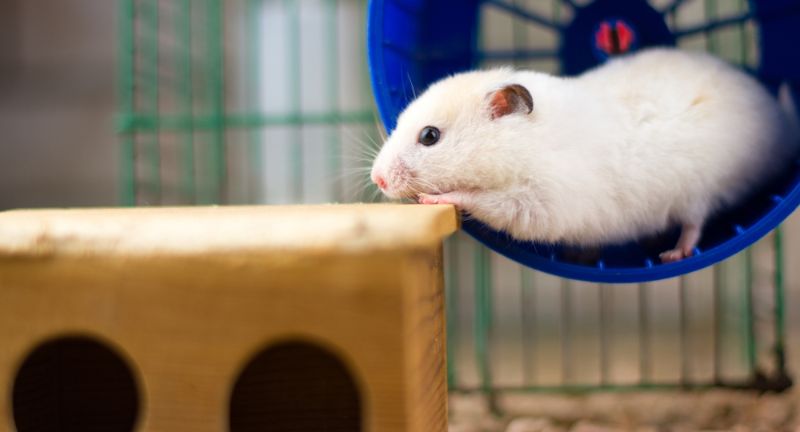
Shutterstock
Hamsters are active at night and can create noise by running on their wheel, chewing, or rearranging bedding. If you’re a light sleeper, placing the cage in a quiet, separate room might be a better option. Their nighttime activity is normal and part of their natural behavior. Understanding this can help you prepare for their unique lifestyle.
Long-Term Responsibility
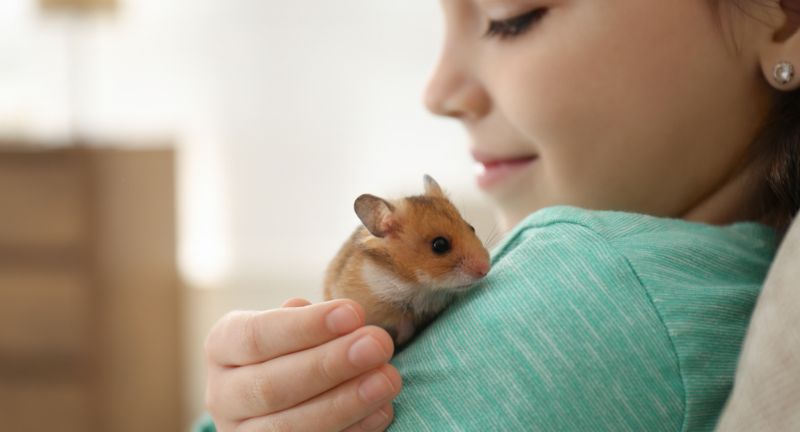
Shutterstock
Although hamsters have a relatively short lifespan, they still require daily attention and care. Their cages need regular cleaning, and their physical and emotional needs must be met consistently. Adopting a hamster is a commitment to providing a safe, loving environment for their entire life. Being prepared for this responsibility ensures a rewarding experience for both you and your pet.
Conclusion
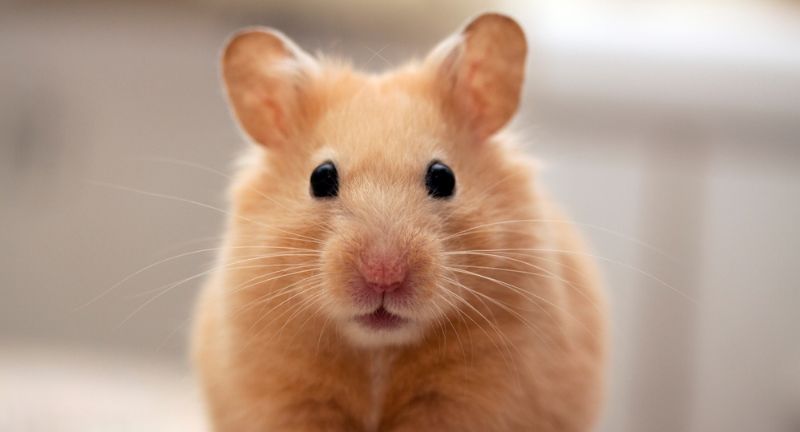
Shutterstock
Hamsters can bring joy and companionship to your life when their needs are met with care and attention. By understanding their behaviors, providing a safe environment, and ensuring proper nutrition, you’ll set the foundation for a happy and healthy pet. Remember, each hamster is unique, and patience is key to building a bond with them. Whether you’re a first-time pet owner or adding to your family, these small creatures have so much to offer. With preparation and love, your hamster can become a cherished part of your household.





























